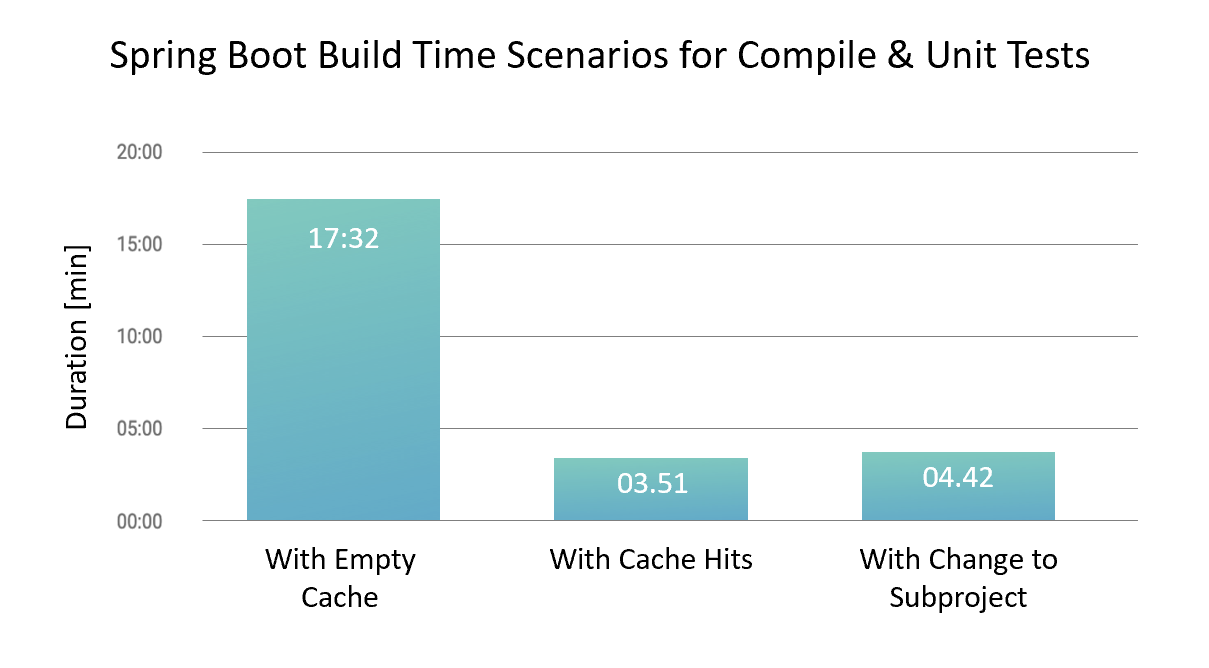
Ideas & Insights
There are many important reasons to minimize
feedback cycles across the software development
and delivery lifecycle. One reason is the positive
effects it has on desired engineering behaviors.
This is particularly true in regard to software
building and testing. Specifically, fast feedback
cycles encourage positive behaviors that may
result in (1) increased individual developer
productivity, (2) increased team efficiency, and
(3) better quality software.
The relationship between the effects of faster
feedback cycles on behavior (e.g. less context
switching and building and testing earlier and
more often) and the three benefits of those
behavioral changes enumerated above is complex.
There are some obvious direct impacts that faster
feedback cycles have in encouraging and
reinforcing good habits and developer best
practices. However, a new Blog article has
untangled the cause and effect relationship with
other indirect benefits you may have not
considered.

Expert Takes
For most organizations, DPE should no longer be
viewed as an informal, reactive, and opportunistic
job to be done by developers in their spare time.
Forward-thinking engineering teams have discovered
that (1) systemic developer productivity gains
require organizational focus, (2) the business
case for forming a dedicated DPE team is a
no-brainer, and (3) the reward for taking action
is a sustainable competitive advantage. That is
why many high-profile Dev organizations have long
ago established dedicated DPE teams.
These business drivers are elaborated upon in a
recent Blog post entitled: Top 3 Reasons to Launch
a Dedicated Developer Productivity Engineering
Team. You can also
check out a video discussion on this topic
with a couple DPE experts: Mark Vieira, senior
software engineer at Elastic (NYSE: ESTC), who
leads the dedicated DPE team, and Hans Dockter,
founder and CEO of Gradle, Inc.

New Technology
As discussed in a recent blog post
Solving Maven Dependency Issues with Build
Scans, dependency issues are frustrating. The rules
are complex and without the right data,
determining exactly what caused the issue can take
time and energy. The new dependency visualization
feature in
build scans
can help. A build scan is a powerful debugging
tool that displays actionable insights for both
local and CI builds all in one report.
The new Dependencies view in build scans for Maven
provides users a graphical representation of the
resolved dependency graph including transitive
dependencies. The searchable list shows version
conflicts, dependency types, and other information
you don’t get from the command line. For changes
between builds, the build comparisons show exactly
which dependencies changed. If you aren’t already
using Gradle Enterprise, you can try this out with
the free-to-use
scans.gradle.com
service which provides some of the features of
Gradle Enterprise.

Success Stories
The Gradle team evaluated the Maven build cache
with a wide range of popular open source projects
both small and large. Most projects, including
small ones, can expect a significant benefit from
the cache. In general, the better your build is
modularized the more effective the cache will work
for you. For example, if there’s only one module
every change requires everything to be recompiled
and all tests to be executed again.
While the Spring Boot project has since migrated
to the Gradle build tool, it’s instructive for
Maven users to look back at the results of a
Spring Boot project build cache analysis described
in detail
here. At the time, the Spring Boot project total
build time—with 1154 goals executed within 88
projects—took 17:32 (with build cache enabled 231
goals were stored in cache, but not executed). The
second build took only 3:51 with 230 goals loaded
from cache. Thus, running the second build without
any changes, isolated an unstable input that could
now easily be fixed. In another scenario that
shows what can be expected when making small
changes to a subproject that changes often, the
overall build time was 4:42.
 If you want to learn more about how build caching
can impact your build performance with Maven,
checkout our May 18 (9:00-12:30 PT) workshop.
Topics include build cache basics, goal
requirements, best practices, troubleshooting and
more.
If you want to learn more about how build caching
can impact your build performance with Maven,
checkout our May 18 (9:00-12:30 PT) workshop.
Topics include build cache basics, goal
requirements, best practices, troubleshooting and
more.

Featured Upcoming Event
In this introductory level presentation and
training led by Gradle (May 19 - N. America; May
20 - EMEA), we will describe and demonstrate
practical DPE use cases in action—taking examples
from Java projects that rely on Maven or Gradle
build tools. Specifically, you will learn how to:
-
Leverage build and test acceleration
technologies like build caching and distributed
testing to instantly speed up feedback cycles as
much as 90%.
-
Cut debugging and troubleshooting time in half
using data analytics to rapidly identify
incident root causes and better manage avoidable
failures like flaky tests.
-
Continuously improve performance and guard
against regressions through metric, KPI and
trend observability.
The end-result of pursuing DPE excellence will be
a transformative and highly satisfying developer
experience. To join, register for the CloudBees
Connect Virtual Summit.
|
